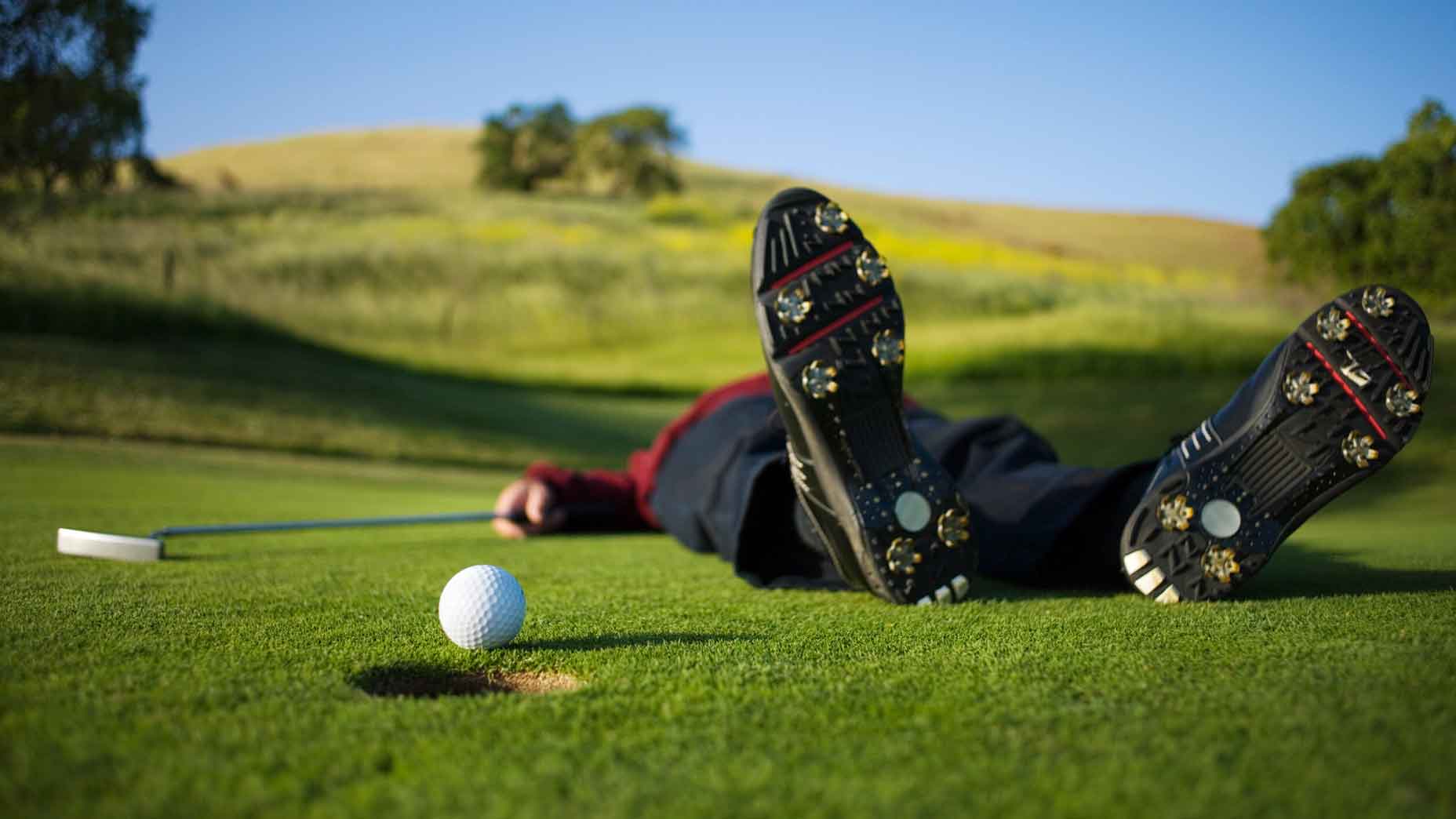Are you a self-handicapper? Here’s how it can help — and hurt — your game
Self-handicapping is a psychological term for the rationalizations we make to protect our self-esteem. Here’s how it can both help and hurt you.
The post Are you a self-handicapper? Here’s how it can help — and hurt — your game appeared first on Golf.
Self-handicapping is a psychological term for the rationalizations we make to protect our self-esteem. Here’s how it can both help and hurt you.
The post Are you a self-handicapper? Here’s how it can help — and hurt — your game appeared first on Golf.
What’s your golf handicap? No, not your current playing index. I’m talking about your self-handicap, defined as your favorite excuse after a sub-par shot or a way- over-par round — and unlike what’s next to your name in the GHIN, it has nothing to do with how you compete. Instead, it’s all about how you compete against yourself.
Self-handicapping is a psychological term for the rationalizations we make to protect our self-esteem. We don’t like to fail, so we preemptively and defensively identify a reason why we might. Two summers ago, in fact, this magazine ranked the most common first-tee excuses — alibis like “I didn’t have a chance to warm up,” “I’ve never played this course before” or the leader of the lamest line list: “I haven’t played in a while.” How many of these have you heard — or said — this season?
I do it too. On a recent, rainy Saturday, I was playing poorly. Shot after shot, I heard myself complain. “My grips are wet,” I said. Then, after the rain stopped, “These grips are old.” On the back nine it was: “I didn’t bring another glove.” I kept finding reasons to make myself feel better about the missed shots.
Professional golfers issue their own versions of these self-handicapping excuses. At a recent PGA Tour event, the co-leader chunked his wedge in the water on 18. He stared at his clubface as if faulty grooves had ruined the shot.
What’s happening here? Justifications serve a productive purpose in that they protect us from seeing our mistakes as personal failures. But, as academic researchers on self-handicapping have found, there is also another benefit to this tactic: It actually helps us enjoy the game more because it helps us discount unfavorable results. As most commentators on the mental game of golf suggest, we usually play better when we stop obsessing about our score.
The authors of an important study on this corner of sports psychology found that pinball players who used excuses like those golfers rely on — “I didn’t practice,” for example — were much more present in their games. Excuses, the research suggests, create less anxiety, lower stakes, more space to have fun and permission to be imperfect.
Excuses can even be a reflection of a participant’s passion. We care about how golf makes us feel. That love of the game and the desire to succeed was a big part of what I was experiencing during my waterlogged round.
But self-handicapping is not always the best strategy for every golfer — certainly not my PGA pros. Tour players depend on high performance and are paid for results. Excuses that deflect accountability also stunt learning, inhibit growth and restrict resilience.
Learn from 2024 Olympic gold medalist Scottie Scheffler. On the 7th hole of his second round, Scottie found himself hacking out of a terrible lie in the tall grass. He took a big swing that advanced his divot farther than his ball. The next shot’s lie wasn’t much better. About that frustratingly relatable sequence, Scheffler said: “I know if I stay patient around this golf course and play well, I can shoot a low score. It’s just a matter if I start freaking out and start forcing things, you’re going to get in trouble really fast.”
Scheffler didn’t dwell on the bad shot that got him into trouble nor the unsatisfying attempt to get out of it. Instead of self-handicapping, he stayed focused and positive.
That’s the difference between an amateur like me griping about my grips and the pro who blames the bug on his ball. For all the side benefits of excuses, they still set a negative tone. After all, how many start with “I didn’t” or “I haven’t”? At the professional level, negativity is kryptonite for concentration and diminishing energy.
One of my clients was recently comparing his range game to his real game and made an astute observation: “I hit it too good in practice to not realize that when I am playing in the tournament, I am more likely to lose my rhythm or start to feel tension and not swing freely.” In competition, swing coaches say, pressure changes a player’s physical movements, compromising everything from swing planes to wrist tension to tempo.
Golf is hard; assessing ourselves honestly is even harder. For the amateur, the self-awareness you’ve previously read about in this column remains a key to success. If self-handicapping helps you enjoy your time out there, that’s fine. It’s important to have fun. Just be conscious of what your excuses are and are not — and when you hear them from your playing partners, no need to roll your eyes. Understand their frustrations, stay focused on your game and move on to your next shot.
Excuses are like cholesterol: There’s a good kind and a bad kind. But there are no good excuses for being unaware.
Julie Elion has worked with half of the top 10 earners of all time, representing over $500 million in career earnings, 150 PGA Tour wins and 25 major championship wins.
The post Are you a self-handicapper? Here’s how it can help — and hurt — your game appeared first on Golf.



